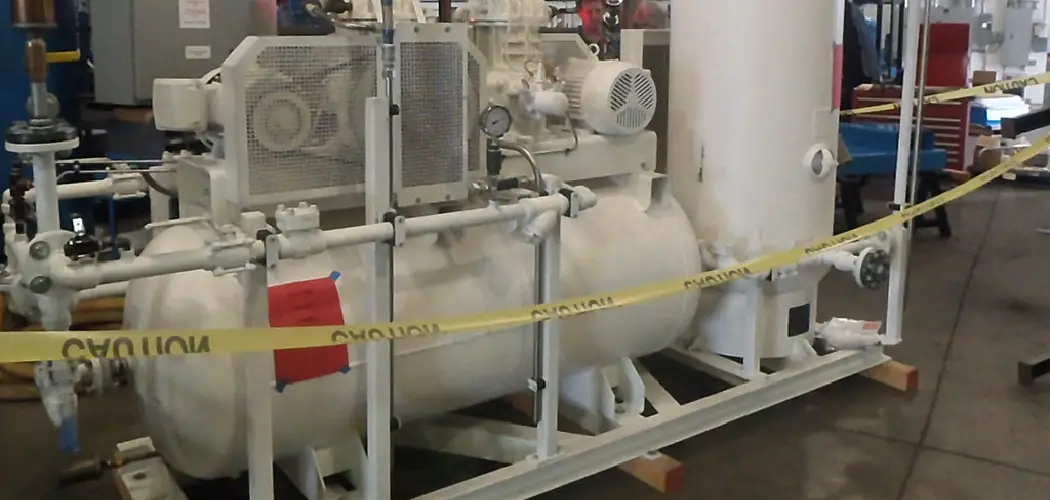If you’re looking for a way to quiet your air compressor, you’ve come to the right place. In this post, we’ll show you how to quiet air compressor using a few simple tips. Read on to learn more!
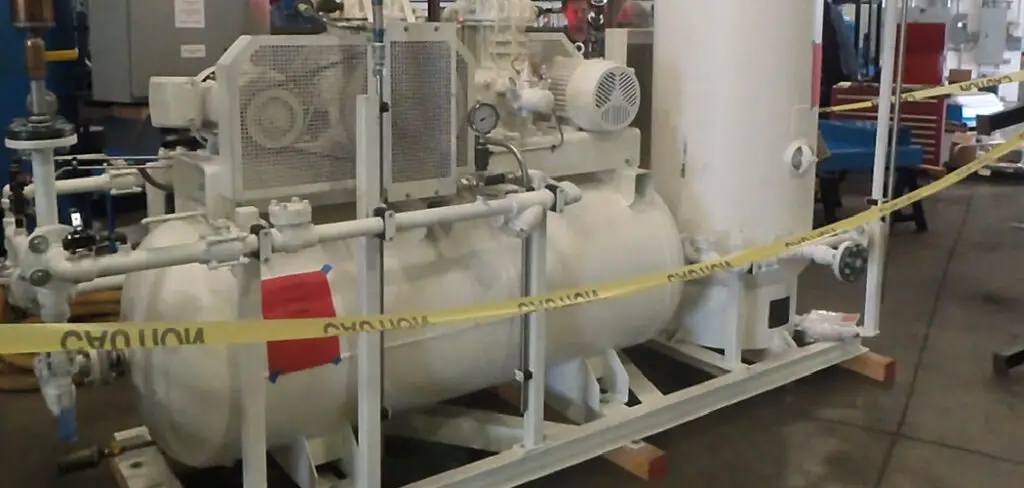
One of the most important pieces of equipment in your shop is the air compressor. It’s responsible for powering all your air tools, which can include everything from wrenches to sanders. So it’s important to make sure your compressor is running as quietly as possible. After this post, you will know how to do that.
Some Reasons for a Noisy Air Compressor
1. The Unbalanced Blower Wheel
If the blower wheel in your compressor is unbalanced, it will cause the unit to vibrate and make noise. You can fix this problem by removing the wheel and balancing it on a table.
2. The Wrong Air Filter
If you’re using the wrong air filter, it can restrict airflow and cause your compressor to work harder than it needs to. This can lead to increased noise levels. Make sure you’re using the correct air filter for your model compressor.
3. Loose Mounting Bolts
If the mounting bolts on your compressor are loose, it can cause the unit to vibrate and make a noise. Be sure to check all the bolts and tighten them if necessary.
4. Worn Out Motor Bearings
If the bearings in your compressor’s motor are worn out, it can cause the motor to vibrate and make a noise. You’ll need to replace the bearings if this is the case.
5. Damaged Air Tanks
If the air tanks in your compressor are damaged, they can make a noise when the compressor is running. You’ll need to replace the tanks if they’re damaged.
6. Unstable Surface
If your compressor is sitting on an unstable surface, it can vibrate and make noise. Be sure to place your compressor on a level, stable surface.

7. Poorly Maintained
If your compressor is poorly maintained, it can make noise. Be sure to clean and lubricate your compressor regularly to keep it running smoothly.
8. Blockage in Discharge Lines
If there’s a blockage in the discharge lines, it can cause your compressor to make a noise. Be sure to check the discharge lines regularly and clear any blockages.
9. Wrong Motor Pulley Size
If the motor pulley on your compressor is the wrong size, it can cause the motor to work harder than necessary and make noise. Be sure to check the pulley size and replace it if necessary.
10. Faulty Exhaust System
If the exhaust system on your compressor is faulty, it can allow noise to escape from the unit. Be sure to check the exhaust system regularly and replace it if necessary.
10 Ideas About How to Quiet Air Compressor
1. Use a Sound-dampening Air Compressor Cover
If your air compressor is particularly noisy, one option to consider is using a sound-dampening cover. This can help to muffle the noise of the compressor, making it more bearable to work around. It will help if the cover is made of a material that can effectively absorb sound, such as acoustic foam.
2. Place Your Air Compressor on a Rubber Mat
Another way to reduce the noise of your air compressor is to place it on a rubber mat. This will help to dampen the vibrations of the compressor, and in turn, reduce the amount of noise that is produced. It will be most effective if you can find a mat that is specifically designed for sound absorption.
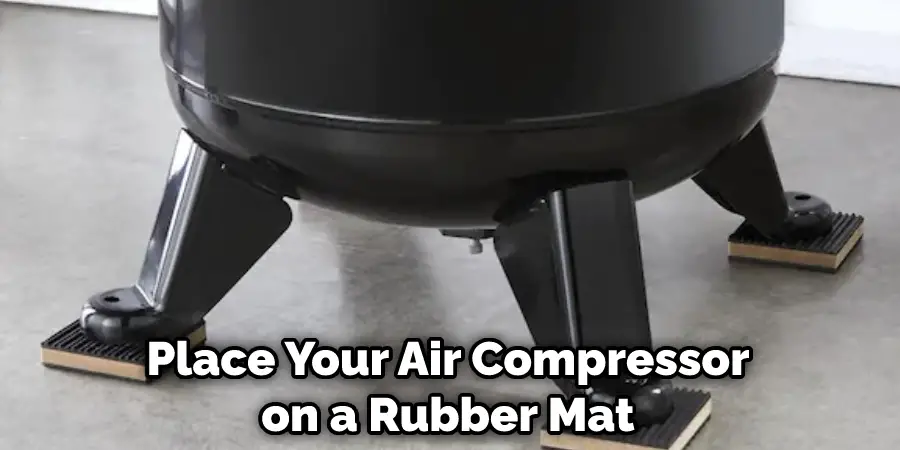
3. Insulate Air Compressor
Another way to reduce the noise of your air compressor is to insulate it. This will help to muffle the sound of the motor and any other moving parts. You can purchase special air compressor insulation kits that contain everything you need to properly insulate your machine. If you’re not sure how to do this, you can consult your air compressor’s manual or ask a professional for help.
4. Use a Sound Dampening Enclosure
If you’re still struggling to reduce the noise of your air compressor, you may want to consider using a sound-dampening enclosure. These specially designed boxes can significantly reduce the amount of noise your air compressor produces. You can purchase a sound-dampening enclosure online or at a local home improvement store.
5. Add Mass to Your Air Compressor
Another way to reduce the noise produced by your air compressor is to add mass to it. This can be done by surrounding the compressor with thick materials, such as foam or fiberglass. This will help to absorb the sound produced by the compressor and make it quieter. You can also add mass to your air compressor by enclosing it in a soundproof box. This will help to trap the noise inside the box and make it quieter
6. Use Soundproofing Materials
If you want to further reduce the noise produced by your air compressor, you can use soundproofing materials. These materials will help to absorb the sound and make it quieter. Some common soundproofing materials include foam, fiberglass, and acoustic tiles.
7. Move Your Air Compressor
If your air compressor is located inside your home, you may want to consider moving it outside. The further away the compressor is from your living space, the less noise you will hear. If you have a small air compressor, you can purchase a wheeled dolly to make moving it a breeze. Larger air compressors may need to be lifted with a forklift or crane. If you need assistance moving your air compressor, don’t hesitate to ask a friend or professional for help.
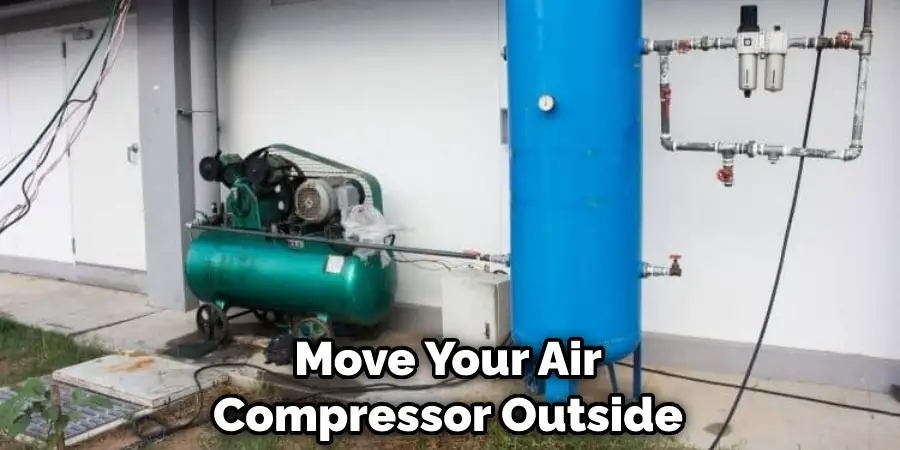
8. Use Air Compressor Accessories
There are a few air compressor accessories that can help reduce noise. One is an airframe wrap, which helps to muffle the sound of the piston as it hits the cylinder head. Another is an intake silencer, which attaches to the intake valve and helps to quiet the rushing air noise.
9. Check for Air Leaks
Air leaks can cause your air compressor to work harder than it needs to, which can increase noise levels. Make sure all fittings and connections are tight, and check the gaskets and seals for any leaks. If you find a leak, repair it as soon as possible.
10. Follow the Manufacturer’s Instructions
When it comes to keeping your air compressor quiet, following the manufacturer’s instructions is essential. Make sure you understand all of the recommended maintenance procedures and follow them carefully. This will help to prolong the life of your air compressor and keep it running quietly for years to come.
Some Additional Tips to Quiet Air Compressor
1. Keep Compressor Lubricated
A well-lubricated compressor will run more smoothly and quietly than one that isn’t, so be sure to check the oil level regularly and change it according to the manufacturer’s recommendations.
2. Check for Loose Fittings
All of the fittings on your air compressor should be tight and secure. If any are loose, they can vibrate and cause noise.
3. Install Acoustic Insulation
By installing acoustic insulation, you can significantly reduce the noise your air compressor makes. This is a relatively easy and inexpensive project that anyone can do.
4. Choose a Quieter Model
When purchasing a new air compressor, look for models that are designed to be quiet. There are many different models on the market, so you should have no trouble finding one that meets your needs.
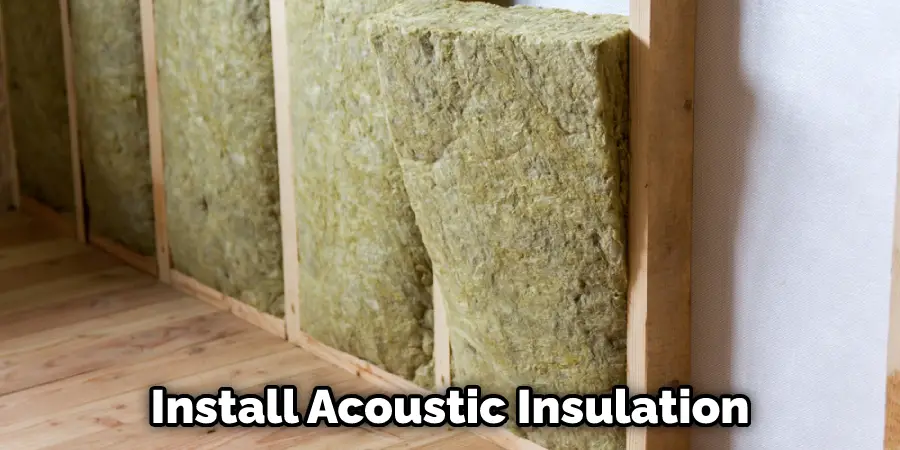
Frequently Asked Questions
Are Oil-free Compressors Quiet?
Some people believe that oil-free compressors are inherently quieter than their oil-lubricated counterparts. The compressor’s lubrication system can account for a significant portion of the overall noise output, so it stands to reason that an oil-free model would be quieter.
How Long Will an Oilless Air Compressor Last?
Oilless air compressors have a shorter lifespan than oil-lubricated models. This is due to the fact that the lack of lubrication allows the compressor’s parts to rub against each other, causing wear and tear.
How Often Should I Replace the Filter on My Oilless Air Compressor?
The frequency with which you should replace the filter on your oilless air compressor depends on a few factors, including the make and model of your compressor, the quality of your air filter, and how often you use your compressor. However, as a general rule of thumb, you should replace the filter on your oilless air compressor every three months or so.
Conclusion
Air compressors are noisy devices, but there are ways to reduce the noise. By following these steps, you will know how to quiet air compressor, so it doesn’t disturb your work or home life.
If the noise levels are still too high for your liking, consider soundproofing your work area or using a quieter model of compressor. With some basic knowledge and a little patience, you can keep your air compressor running smoothly and quietly for years to come.
You Can Chack It Out Install Water Separator on Air Compressor

